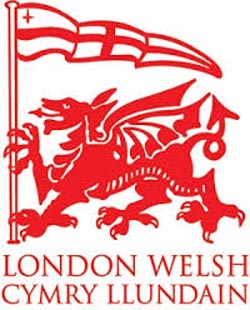
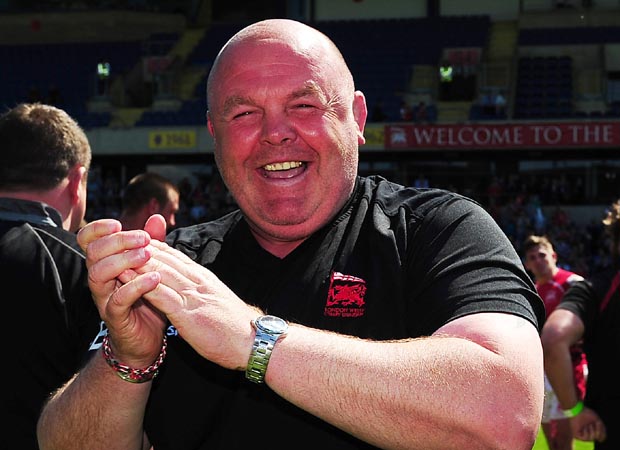 Justin Burnell would be hard to beat if there was a prize for the greatest comeback of last season. There is nothing undersized about the London Welsh head coach, including his capacity for canny decision-making, and the way he masterminded the club’s immediate return to the Premiership after their relegation last summer has ensured he has gone from unheralded to headliner in the course of a single season.
Justin Burnell would be hard to beat if there was a prize for the greatest comeback of last season. There is nothing undersized about the London Welsh head coach, including his capacity for canny decision-making, and the way he masterminded the club’s immediate return to the Premiership after their relegation last summer has ensured he has gone from unheralded to headliner in the course of a single season.
London Welsh were probably the last side that Premiership Rugby wanted back in the top echelon. Their successful legal challenge to ring-fencing in 2012, followed by the Tyson Keats eligibility furore in 2013 which led to them being docked five points, saw to that – but Burnell’s marshalling of their resources as successor to Lyn Jones ensured their promotion.
The Welsh Exiles battered Bristol, Premiership Rugby’s preferred choice, so comprehensively in May’s two-leg Championship final – winning the first match at the Kassam 27-8 and the return at the Memorial Ground 21-20 for an aggregate 48-28 verdict – that there was no wriggle-room for the Premiership naysayers.
Now London Welsh are in the top flight again, and while some might view Burnell’s bunch as unwelcome guests, their tenacity, mirroring that of the the club’s main backer, Kelvin Bryon, has earned the admiration of many aspiring clubs and the grudging respect of their ring-fencing foes.
Bryon says this is a defining moment. “This season is the most important in the history of the club.” No pressure, then, Mr Burnell. However, the former Pontypridd blindside flanker, has shoulders broad enough to carry the load.
Burnell, whose coaching credentials include guiding Wales U19 to a Grand Slam in 2006, and a season as Cardiff Blues head coach, is known for his down-to-earth approach and straight-talking, unflustered manner.
Ask him to reflect on last season’s promotion battle, and whether he thought it would always come down to a head-to-head with runaway league leaders Bristol, and “Not really” is the response.
“I genuinely thought that Leeds and Rotherham on their day could beat anyone. It was no foregone conclusion, and it was not a two-horse race. I said throughout that we had to get into the top four, and whatever was said later by other clubs the rules were always very clear – and we adapted to that.”
Burnell elaborates: “The first part of the process was to be in the top four, and that was almost a year-long process by week 52! In that sort of situation you have to know when to peak. It’s about rotation, having the next man ready to step in when there are injuries or any other hiccups.”
He adds: “We had 39 players who all played league games. That is a remarkable statistic, and it paid off. For example, in the second leg against Bristol when Mitch Lees and Richard Thorpe – who hadn’t played for five weeks – just slotted in straightaway.”
Burnell says he was always confident in London Welsh’s play-off credentials against Bristol.
“I don’t want to be arrogant, but we were comfortable that we were a match for anybody going into that two-leg final. We were in a good frame of mind and confident. The whole squad had a sense of being part of it because of the selection policy, and that was reflected in the decision of 25 players who didn’t pull on a pair of boots taking the bus down to Bristol to support their team-mates. And afterwards we all celebrated together on the field.”
He stresses the importance of team-work: “They only gave out 30 medals to the side that won the Championship but London Welsh paid the extra and ordered another 20 medals to make sure that everyone in the squad got one. We are the London Welsh family, and very proud of our environment. After the match the management vacated their places on the team bus so that all the players, whether they participated in the final or not, travelled back together.”
He pays tribute also to the three men behind London Welsh’s bid to become an established Premiership outfit. “We are very fortunate that with Kelvin Bryon, Bleddyn Phillips and Steve Lewis we have three of the most astute businessmen in rugby at London Welsh. They are 100 percent supportive and we share our opinions and views together. It’s very much a ‘we, not me’ outlook.”
 It is that sense of shared endeavour, combined with an influx of new Premiership-quality signings -including the addition this week of All Black scrum-half Piri Weepu – that gives London Welsh a depth they did not have the last time they were in the top league.
It is that sense of shared endeavour, combined with an influx of new Premiership-quality signings -including the addition this week of All Black scrum-half Piri Weepu – that gives London Welsh a depth they did not have the last time they were in the top league.
Burnell is cock-a-hoop over Weepu’s arrival. “It doesn’t get much better than being a World Cup winner with 71 caps for the All Blacks – it’s a signing that speaks for itself. It’s a massive statement of intent from the club in regard to its drive to be able to compete in the Premiership next season, and not just survive.”
He continues: “We watched him play in the recent Singapore 10s, and we also talked to the Auckland manager. The leadership and direction he gave Auckland is why they won the tournament, and when we met him we knew straight away that he would fit in. It’s also going to be a fantastic opportunity for the younger players within our squad to mix and learn from a player of Piri’s experience and ability – his kicking game and tactical appreciation are tremendous.”
Weepu himself says: “London Welsh is a globally recognised brand and I’m looking forward to helping the club re-establish itself in the top flight.”
However, it is not a one man band, and from the outside the biggest challenge facing Burnell is keeping the ‘London Welsh family’ ethos while absorbing 21 new signings, including former England internationals like Olly Barkley and Dean Schofield.
Burnell is unfazed. “The London Welsh environment and establishment is set up, and that means that the players coming in have to adapt to us, not us to them. It’s about fitting in with the London Welsh family. It is a collective which you can compare to having grandparents, dad and mum, and kids. Everyone in the structure has different roles. I’m maybe tougher than the younger coaches like Ollie Smith, Gordon Ross and Matt Ferguson, so if I’ve given them a bollocking in the ‘dad’ role the others can be ‘mum’ and soften the blow.”
He adds: “Nobody is bigger than London Welsh. We haven’t had that problem, but a selfish individual would not work in our environment. Because of our strength and unity they would be found out. It’s not just about Justin Burnell telling everyone what to do. In training this week Gordon Ross has stepped in, and so have senior players.”
 He also outlines why Ross, so intrinsic to last season’s play-off triumph at fly-half, will be an assistant coach rather than in a player-coach role. “We’ve got Olly Barkley, Tristan Roberts, Will Robinson and Seb Jewell all wanting to play fly-half, so we have to move things forward. We have to give respect to the boys in the squad competing for the No.10 shirt. So, Gordon will be 99 per cent assistant coach, and will only play on a needs-must basis.”
He also outlines why Ross, so intrinsic to last season’s play-off triumph at fly-half, will be an assistant coach rather than in a player-coach role. “We’ve got Olly Barkley, Tristan Roberts, Will Robinson and Seb Jewell all wanting to play fly-half, so we have to move things forward. We have to give respect to the boys in the squad competing for the No.10 shirt. So, Gordon will be 99 per cent assistant coach, and will only play on a needs-must basis.”
Burnell, who set out his stall of two wins for London Welsh from their first six Premiership matches in last week’s edition of TRP, acknowledges that to achieve it the club’s big signings must hit the ground running.
“It’s massive. We coaches can do everything from Monday to Friday, but on match day it is about the players delivering. Piri is an All Black scrum-half with leadership quality, while Olly has the experience of being an international fly-half. But they are not isolated because we also have a strong, mature midfield with Tim Molenaar and our captain, Tom May, and a back row forward in Carl Kirwan who is a young man with an old head. In the front five there’s Argentina loosehead Pablo Henn, a born scrummager who has played 100 games in the Top 14, and Dean Schofield who has stacks of Premiership experience.”
He says that his blend of new and old, with the majority of last season’s play-off squad retained, will not go into the Premiership with a desperado mentality.
“The likes of Gordon Ross, Tom May and Matt Corker learned a lot last time, and also many of our new recruits know what it’s about. We’re not here just to survive, we’ve got to pick up those wins. We give everybody the same respect irrelevant of where they finished in the league last season – we’re not saying we’re targeting this or that. I don’t buy into the idea that every single week is a cup final for us. It’s simply another game in which we are going to compete and give of our best.”
He says the strategy will also be different: “The biggest difference is that in the Championship as long as you got in the top four you have another bite at the cherry. This time we have to go into each game with the idea of coming away with a minimum of one point. We have to scrap for everything – and that includes looking for try bonus points because last season in the Premiership there were a lot of high-scoring games.”
Burnell also sees a positive from the move to Oxford’s Kassam Stadium from Old Deer Park, and the fact that the club’s support base is a work in progress. He subscribes to the view that not being reliant on others for motivation builds resilience and mental toughness, including an ability to win on the road.
“There was evidence of that in the second leg of the Championship final, with 14,000 Bristol supporters roaring their team on. We went to the Memorial Ground to win, not to hang on – and we said beforehand that we would use that as preparation for this season.”
Burnell’s boys do not have the look of Premiership push-overs, and the struggle to steer clear of relegation promises to be fierce.
*This article was published in The Rugby Paper on July 13

1 Comment
You must be logged in to post a comment Login
Leave a Reply
Cancel reply
Leave a Reply
You must be logged in to post a comment.

Latest News
Super Rugby Americas: Round Ten Review

British and Irish Lions
British and Irish Lions: Biggest winners and losers from Andy Farrell’s selection

















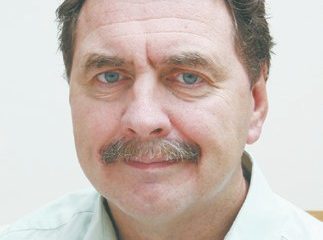

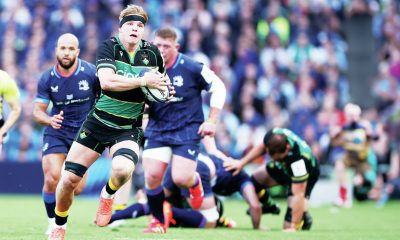

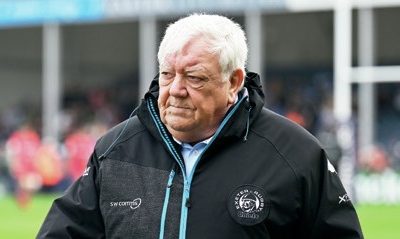

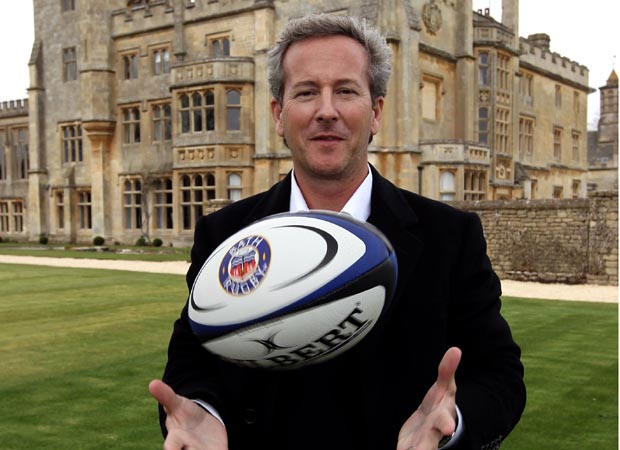
Pingback: buy cannabis oil online in europe